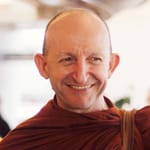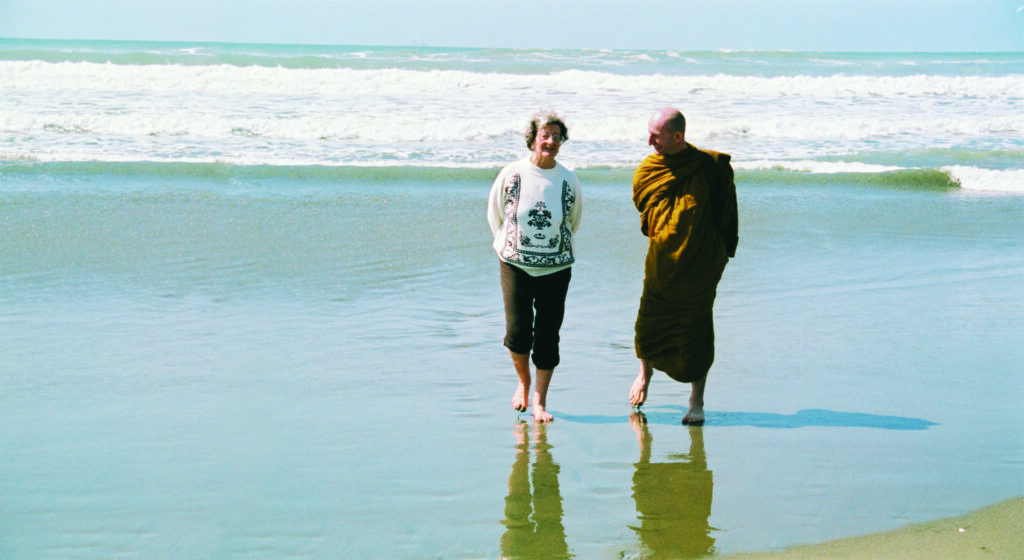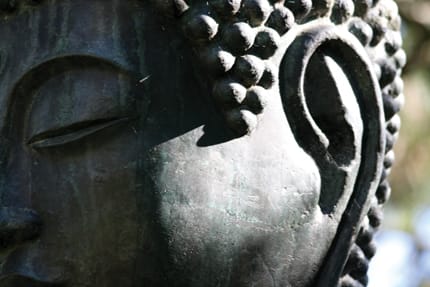Ajahn Amaro is the abbot of Amaravati Buddhist monastery in southeast England. he was ordained as a bhikkhu by Ajahn Chah in 1979 and was the founding co-abbot of Abhayagiri Buddhist monastery in redwood Valley, California, where he served until 2010.
Ajahn Amaro
Recent Articles
Reflexiones sobre el amor de una madre
Antes de conocer el dharma, explica Ajahn Amaro, su madre fue su principal ejemplo de gran bondad y generosidad.
Attending to the Deathless
“When the heart is released from clinging,” said the Buddha, “then consciousness does not land anywhere. That state, I tell you, is without sorrow, afflication or despair.” Ajahn Amaro on abiding in the consciousness that is completely beyond conditioned phenomena—neither supporting them nor supported by them.
Forum: The Beauty of Renunciation
Renunciation is about more than just doing without things. It’s the beautiful realization that you already have everything you need. Forum participants: Ajahn Amaro, Geoffrey Shugen Arnold, and Elizabeth Mattis-Namgyel. Introduction by Koun Franz.
Between Arhat and Bodhisattva
Ajahn Amaro examines the arguments for and against the arhat and bodhisattva ideals that define and too often divide the Buddhist traditions. He suggests a way out of the polarizing debate.
What’s In a Name?
Ajahn Amaro presents two helpful meditation practices you can do while listening to the inner sound.





